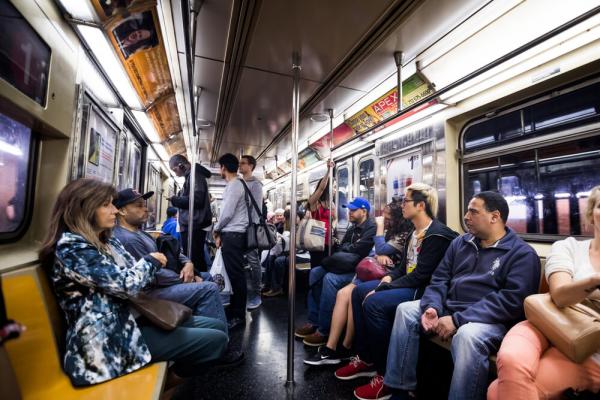I’m a people-watcher, but I also like to interact with people I meet out in the world. I love the engagement and interpersonal connections.
As I walked the center aisle of a commuter train in Philadelphia, I saw a young woman wearing a hijab, sitting very close to the window near the middle of the train car. She was tucked into the corner of the seat, keeping to herself, somewhat wary of others. This young woman appeared to me to be uncomfortable, totally aware of those around her, and barely glancing at those who were passing by. I attempted to make eye contact, and she briefly looked in my direction, but made no real connection. I sensed unease.
In ON Scripture's video for this week, Jewish and Muslim women break past the barriers of experiences and assumptions to have authentic conversations with one another. Through the Sisters of Salaam Shalom, they are coming together to discover their similarities and bond together as friends and fellow travelers in the world. They are finding common ground, language, or customs to be bridges to relationships. They are not allowing the world to separate them.
In the Bible, John 14:1-14 comes at a pivotal moment in the life of Jesus. On the night he was having the last supper with his disciples, before his arrest and betrayal, he is giving his followers a sense of the promise of reuniting with their rabbi and leader in the world to come. It is a promise that, in God’s house, there is enough room for all of us.
But even amid Jesus’ promise there is also the problematic phrase, “I am the way, and the truth, and the life. No one comes to the Father except through me.” The narrow interpretation of this phrase is that the only way to one of these rooms is to give one’s heart and life to Jesus.
Growing up in Texas, in “the buckle of the Bible belt,” I was subjected to the judgment and pressure that, as a Christian, you must accept “Jesus as your personal lord and savior.” I heard this on so many occasions that I grew up hating the phrase. I came to believe that this narrowing of the love and grace of God to one expression or pathway was inappropriate.
Instead, my Lutheran congregation proclaims every Sunday, “We find our approach to God through the life and teachings of Jesus Christ, who is our model for living. We recognize the faithfulness of other paths which may also lead people to an experience of God.” This kind of openness is what I was looking for.
But some in our world view persons of different faiths as the enemy. They act in hateful and violent ways. The Sisters of Salaam Shalom are working past the differences and the hate to form real relationships. These women know they are in this life together. They know that we have more in common than we are different. They know that amid hate, indifference, greed, violence, and judgment, we can only make it if we band together.
That day on the train, I sat behind the young Muslim woman, Naja, and cautiously engaged her in conversation. After exchanging greetings, we started a conversation and as we went deeper, she shared that this was not her usual route, and she knows people on other routes that sit next to her to make her feel safer. This train ride, for me, was an opportunity to connect to another human being who was a bit afraid. And it was a chance to learn about the ways she interacts with the world.
We live in an era where hate against others often happens and distrust is rampant. Jews, Muslims, and Christians can and must form relationships with eachother.
I believe the rooms Jesus was describing are for all persons. I believe the welcome from God is incredibly diverse, with vibrant differences and rich variety. I want to be in one of the rooms, and I want to see my Jewish and Muslim brothers and sisters next door.
A narrow view of who is welcome in God’s house does nothing but separate us from one another. Don't forget there are many rooms. All are welcome.
Via ON Scripture.
Got something to say about what you're reading? We value your feedback!
